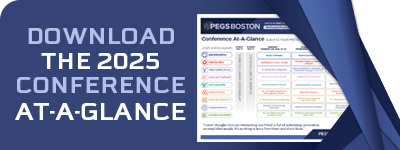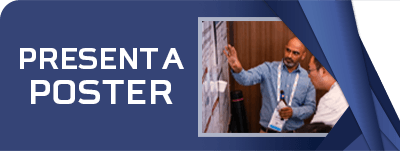ショートコース
ショートコースでは、指導的かつインタラクティブに、特定のトピックに関する詳細な情報を提供します。参加者と講師が1対1でやり取りできるため、メインのプレゼンテーションでは取り上げられないような、技術的な側面についての説明が容易になります。
ショートコースは、対面のみで提供
Sunday, May 11, 2025 2:00 - 5:00 pm
SC1: In silico and Machine Learning Tools for Antibody Design and Developability Predictions
Topics to be covered include:
- Overview of sequence, structure-guided, ML (machine learning) tools for developability and designs
- Overview and demo of various ML tools from Oxford Protein Informatics Group (OPIG)
- Antibody specific language models (Ablang - Olsen et al 2022, Ablang2 - Olsen et al 2024)
- Antibody (and nanobody) structure prediction (ABodyBuilder2) Abanades et al 2023)
- Therapeutic antibody profiling and developability evaluation (TAP - Raybould et al 2019, TAP2 - Raybould et al 2024)
- Antibody sequence optimization with inverse folding (AntiFold - Hummer et al 2023)
- In silico developability assessment - case studies
INSTRUCTOR BIOGRAPHIES:
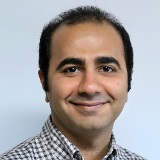 Mehdi Boroumand, PhD, Associate Principal Data Scientist, Machine Learning, AstraZeneca
Mehdi Boroumand, PhD, Associate Principal Data Scientist, Machine Learning, AstraZeneca
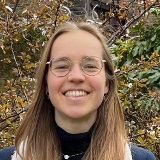 Henriette Capel, PhD Student, University of Oxford
Henriette Capel, PhD Student, University of Oxford
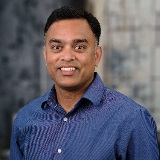 Vinodh B. Kurella, PhD, Biotherapeutic Computational Modeler, Takeda Pharmaceuticals, Inc.
Vinodh B. Kurella, PhD, Biotherapeutic Computational Modeler, Takeda Pharmaceuticals, Inc.
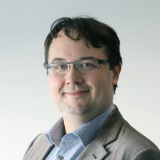 Robert Vernon, PhD, Associate Director, Amgen
Robert Vernon, PhD, Associate Director, Amgen
SC2: Safety & Efficacy of Bispecifics and ADCs
The short course will discuss:
- Bispecific and ADC landscape assessment and unmet medical needs
- Efficacy and safety challenges originating from poorly constructed ADCs
- Five rights of the targets, effector arms, and constructs for attaining the best therapeutic index for bispecifics and ADCs
- Minimizing toxicities of bispecifics and ADCs
- Translational aspects of bispecific and ADC development
INSTRUCTOR BIOGRAPHIES:
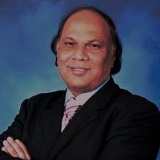 Rakesh Dixit, PhD, DABT, President & Founder, Bionavigen Oncology, LLC and Regio Biosciences
Rakesh Dixit, PhD, DABT, President & Founder, Bionavigen Oncology, LLC and Regio Biosciences
SC3: Challenges and Opportunities in Solid Tumor and Autoimmune Disease Therapeutic Innovations
- Identify and develop next-generation immunotherapies for solid tumors and autoimmune diseases
- Analyze the solid tumor microenvironment, discussing successful therapies such as T cell engagers, blocking bispecific antibodies, ADCs, CAR-Ts, Radio ligand therapy and Targeted Protein degraders
- Examines autoimmune disease biology and therapeutic development, integrating approaches like immune target blockade and autoantigen tolerizing.
- Highlights the application of machine learning and generative AI in discovering novel therapeutic targets and expediting therapeutic development.
- Addresses the challenges and provides case examples of cutting-edge therapeutic approaches in both cancer and autoimmune diseases
INSTRUCTOR BIOGRAPHIES:
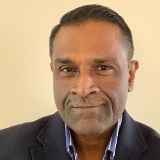 Tony R. Arulanandam, DVM, PhD, CEO and Founder, Synaptimmune Therapeutics
Tony R. Arulanandam, DVM, PhD, CEO and Founder, Synaptimmune Therapeutics
Tuesday, May 13, 2025 6:30 - 9:00 pm
SC4: Best Practices for Targeting GCPRs, Ion Channels, and Transporters with Monoclonal Antibodies
INSTRUCTOR BIOGRAPHIES:
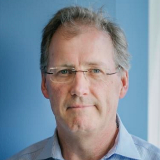 Ross Chambers, PhD, Vice President, Antibody Discovery, Integral Molecular, Inc.
Ross Chambers, PhD, Vice President, Antibody Discovery, Integral Molecular, Inc.
SC5: Targeting the Target: Aligning Target and Biologic Format Biology to Achieve Desired Outcomes
Topics to be covered
- Introduction to the “components of success paradigm”
- Underlying concepts and examples of one target, multiple functions/outcomes
- How emerging technologies are and could impact
- o Understanding target biology, lead selection and discovery/development paradigm
- o Target space for bispecifics, ADCs and other therapeutic formats/concepts
- Case studies: (i) evaluating functional impact of different mAbs to the same target (target/mAb biology): (ii) designing biologic molecules to develop functional assays to assess novel/emerging target biology and potentially develop novel therapeutics
INSTRUCTOR BIOGRAPHIES:
 Tariq Ghayur, PhD, Tariq Ghayur Consulting, LLC; Entrepreneur in Residence, FairJourney Biologics
Tariq Ghayur, PhD, Tariq Ghayur Consulting, LLC; Entrepreneur in Residence, FairJourney Biologics
SC6: Developability of Bispecific Antibodies
Topics to be covered
- Introduction to bispecifics and bispecific formats
- Therapeutic applications of bispecific antibodies
- Developability of bispecifics
- Case study: discovery and development of an FDA-approved bispecific antibody
INSTRUCTOR BIOGRAPHIES:
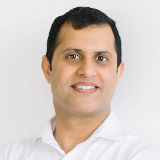 Nimish Gera, PhD, Vice President, Biologics, Mythic Therapeutics
Nimish Gera, PhD, Vice President, Biologics, Mythic Therapeutics
SC7: Nuts and Bolts of Building a Radiopharmaceutical Therapy Agent
INSTRUCTOR BIOGRAPHIES:
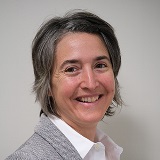 Diane S. Abou, PhD, Principal Radiochemist, Assistant Professor, Mallinckrodt Institute of Radiology, Washington University School of Medicine in St. Louis
Diane S. Abou, PhD, Principal Radiochemist, Assistant Professor, Mallinckrodt Institute of Radiology, Washington University School of Medicine in St. Louis
* 不測の事態により、事前の予告なしにプログラムが変更される場合があります。
アジェンダ・講演者・スポンサー更新
2025年 プログラム
表示する:

工学ストリーム

腫瘍ストリーム

多重特異性ストリーム

免疫療法ストリーム

発現ストリーム

分析法ストリーム

免疫原性ストリーム

新興治療ストリーム

機械学習ストリーム





